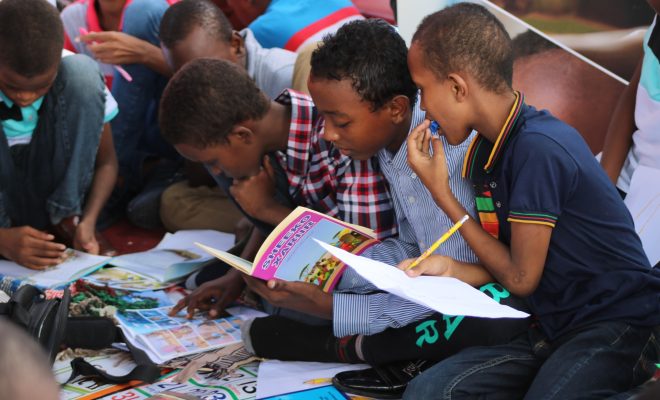Philosophies of Education: 2 Types of Society-Centered Philosophies

The future of education is transpiring every day. Therefore some philosophies may remain while others fade away. In this article society-centered philosophies are discussed to understand the impact of society on education today and in the future. There are two types of society-centered philosophies that will be observed which are critical theory and globalization.
Society-centered philosophies go beyond focusing on the student and focus instead on a group or a population. Society-centered philosophies focus on educating a group of people—whether a minority group or the world as a whole—rather than a curriculum or a student. The objective is to improve society as a whole.
Critical theory is a philosophy of education that analyzes institutions, organizations, and instruction in terms of power relationships. According to proponents of critical theory, schools are controlled by the powerful, wealthy upper class that marginalizes the lower classes by using their control to maintain or reproduce their favored position on an issue. The supporters of critical theory strive to empower subordinate classes by analyzing social and educational circumstances in schools and in society. They draw attention to exploitative power relationships such as determination or marginalization to foster change.
Critical theory began to gain momentum in the 1960s at the time of Martin Luther King, Jr. At this time minority groups were desperately pursuing equal opportunity and representation. Two followers of Marxism Paulo Freire and Henry Giroux, were two of the leading contributors to critical theory, and as a result, it’s heavily influenced by Marxist theory. Freire, in Pedagogy of the Oppressed in 1968, called for education that raised people’s awareness about the reality of their economic and social condition and inspired them to take the steps needed for their own empowerment. Giroux, seeing education as a leading proponent of politics, analyzed the educational institutions and resisted dominant ideology to create a more equalitarian democratic society and education.
Promoters of critical theory maintain that the current curriculum has two components: an official curriculum and a hidden curriculum. The hidden curriculum refers to the unspoken, yet apparently prevalent inclusion of views that tend to support the continued existence and maintenance of the dominant or upper class. Critical theory advocates that, to prevent the advancement of the hidden curriculum to the detriment of the lower classes, schools use officially sanctioned textbooks that are unbiased in terms of views that will promote or maintain the dominant or upper class. In addition, teachers are expected to encourage students to voice their beliefs about their own values, rather than those that are simply popular.
Globalization. On a wider scale than the educational landscape, globalization refers to the processes that promote worldwide participation and relationships between people of different countries, cultures, and languages. Four main processes promote globalization: communication processes, economic processes, political processes, and educational processes.
Global communication processes are how information is delivered. Television, e-mail, the Internet, newspapers, and textbooks are all sources of globalization communication. When the news is reported, technology, such as television and the Internet, allows this information to be widely and rapidly disseminated across the world in a matter of seconds or minutes. Textbooks, on the other hand, by their nature are always dated, although they do provide us with an organization of information that can provide a clearer picture of events, along with the ability to gather and verify various reputable sources on the subject. Natural disasters have a particular ability to spark a sense of globalization, such as when a tsunami in Japan or an earthquake in Haiti spawned calls for aid from other countries.
Global economic processes involve all aspects of buying and selling goods and services across the globe. Some multinational corporations are reducing costs by outsourcing certain roles and responsibilities within the company to employees in another. Many individuals can obtain employment in countries other than their country of residence and may commute physically by flying. Or they may telecommute, using the Internet to hold meetings with offices across the globe.
Global political and educational processes can be viewed as interrelated. Political organizations across the globe are necessarily in contact, making and amending trade and transportation agreements, for example. International policy frequently affects multiple countries, and their leaders are required to open dialogue on several issues that, as recently as ten years ago, would have been considered internal issues.
Education is one such issue, as the demands of a global employee require a certain amount of standardization in the level of skills. An excellent example of this is familiarity with technology. Teachers in developed countries with affordable access to technology are expected to incorporate technology into every aspect of their teaching, but the same would not necessarily be expected of a teacher in a rural school in an underdeveloped country. But regardless of expectations, or where they live, all students will, at some point, come into contact with technology, and dialogue on a global level is therefore important, encouraging teachers from all countries to enable their students to be aware, if not familiar, with advances in technology.
Critical theory and globalization are good identifiers in education as the industry continues to change. Therefore understanding these society-centered philosophies will aid as you encounter potential transitions within the classroom or in education.






